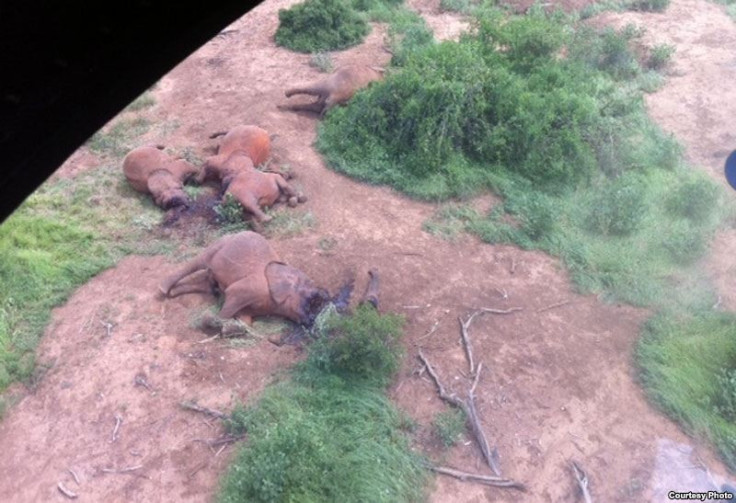Slaughter of the Elephants: 177 Governments Urged to Take Action
Traffic and WWF tell CITES delegates: Tighten sanctions on ivory trade countries before it is too late

Governments across the world have been urged to take tougher action to stop the illegal trade of ivory before it is too late.
Campaigners with WWF and Traffic have asked 177 governments gathering in Bangkok for the Convention on International Trade in Endangered Species of Wild Fauna and Flora (CITES) to stop the trade in up to 30,000 slaughtered African elephants every year.
The charities want governments to implement strict trade regulations against countries where the illegal ivory trade is most prominent.
Nigeria, Thailand and the Democratic Republic of Congo have done little to address the trade of illegal ivory, despite it being rife in all three countries.
Thailand, where the convention is being held, has one of the world's largest unregulated ivory markets.
Traders there are able to take advantage of Thai laws, which allow the sale of domestic elephants, meaning they can launder huge quantities of illegal African ivory through Thai shops.
Demand for ivory has increased in China and east Asia with elephant tusks and rhino horns being used in traditional medicines as cancer treatments, aphrodisiacs and hangover cures. Last year, a record 668 rhinos were killed for their horns.
Carlos Drews, director of the global species programme at WWF, said: "Thailand can easily fix this situation by banning all ivory sales in the country and in doing so would eliminate the need for trade sanctions.
"WWF is petitioning the Thai prime minister for an immediate ban on the ivory trade. Nearly 400,000 people from Thailand and across the world who want a future for wild elephants have joined this call.
Widespread poaching crisis
"Elephants are disappearing from more and more places in Africa because the ivory trade has exploded out of control.
"Every country that has signed the CITES treaty has a responsibility to protect elephants by holding member governments accountable for their involvement in this deadly trade."
CITES member states are able to recommend their parties stop trading with countries that are not complying with stricter rules imposed on the 35,000 species covered by the convention.
Steven Broad, executive director of Traffic, said: "These countries have been identified in every ivory trade analysis for the past decade as those most implicated in the illicit ivory trade.
"With the demand for ivory driving a widespread poaching crisis, CITES member countries must demand compliance with international law."
The two charities are also urging China to address its problem with illegal ivory, saying the country should consider imposing stricter trade restrictions if no progress is made over the next year.
To better regulate the ivory trade, the WWF and Traffic say there should be a compulsory registration of all large scale ivory seizures, a mechanism to track global ivory stockpiles and routine forensic exams of ivory being traded.
"Vital information from large-scale ivory seizures is being lost or not acted upon," Broad said.
"Investigations into who was behind each shipment, how it got onto the transportation used, and who was going to benefit from its arrival is not being sought or acted upon. It's little wonder there's been an escalation in ivory trafficking."
© Copyright IBTimes 2025. All rights reserved.






















